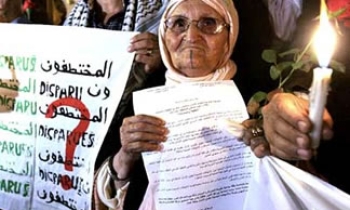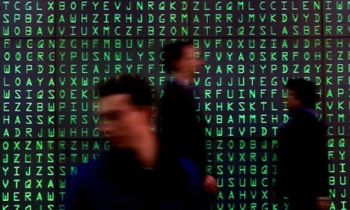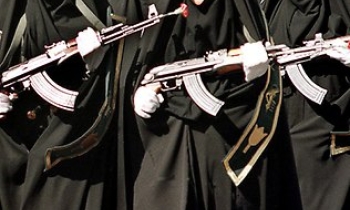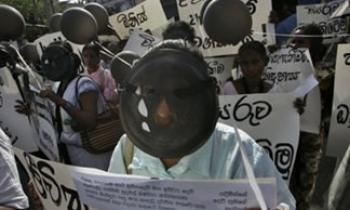THE voice on the telephone was that of a trusted contact whose advice on security in Iraq has often been a source of reassurance. But the message he passed on last Wednesday and the urgency of his tone could hardly have been more alarming: my name had been placed on a hit list by one of the groups whose death threats have spread fear through countless communities in this stricken country.
“A decision has been taken to liquidate you and your colleagues,” he said. “You are to be the second Atwar Bahjat.”
This came like a punch to the stomach. Bahjat had been a friend of mine until she became the first Arab female journalist to be kidnapped by the death squads. Since her murder on February 22, not a day has gone by when I have not thought about her and her terrible fate.
My heart seemed to stop beating and for a moment I could not hear anything except a rush of blood to the head. I handed the receiver to my Iraqi fixer.
When he put down the phone a few minutes later, his face was white. He too had been threatened, as had Steve Bent, my photographer husband, who had joined us on the assignment in Baghdad.
I do not want to give publicity to the group concerned by naming it, particularly if this would jeopardise the people whose support I have counted on during numerous visits to Iraq over the past four years.
In any case, one group of Iraqi extremists is much the same as any other these days: all engage in unspeakable acts of barbarity, from filming hostages’ heads being slowly severed to searing holes in their prisoners with electric drills.
I knew that we could be in imminent peril. “You have been named as a target — there is a specific danger,” my contact had told me, warning me not to go outside.
Unfortunately, there was no official body to turn to amid the chaos of Iraq. I felt angry, vulnerable and helpless. In short, I suddenly knew what it was to be an Iraqi.
Only the previous week, Sunnis and Shi’ites had described to me their sense of despair when confronted with cruel threats. People are routinely told to leave their homes and move out of the districts in which they have lived since birth in systematic “cleansing” that seems to have intensified in the first half of this year.
Sectarian violence in the past four months has pushed the number of internally displaced people to more than 130,000, the Iraqi parliament was told on Monday. Some 650,000 have departed for the relative safety of Jordan, Syria, Lebanon and the Gulf, including an estimated 40% of the professional classes. Many are well-educated people such as doctors and engineers who are desperately needed by their country, but cannot afford to ignore the danger to their families. Death threats are driving them out.
I had interviewed people on the run but never once did I imagine that I too might be marked out for murder simply for doing my job.
I could not help thinking of the Baghdad morgue I had visited last month. More than 6,000 corpses have passed through it since the start of the year, many of them horrifically disfigured. I have seen photographs of bodies — and body parts — mangled and charred by car bombs; and corpses full of holes made by drills, the favourite tool in the Iraqi torture chamber. Despite my sense of moral and professional obligation to cover the story of Iraq and its people, it was obvious that I would have to act fast. Unlike many unfortunate Iraqis, I had the ability to do so, given the safety net provided by The Sunday Times.
I e-mailed the foreign editor with an urgent message to telephone me and heard myself say that I did not want to die like Atwar. He told me that arrangements would be made to get all three of us out of the country on the first available flight.
There was only one problem. There were no more flights that day and at first I thought it would be safe enough to remain in the hotel overnight.
My office was adamant: no matter how well protected the hotel was by security guards, there was no defence against death squads whose members often gained access to homes, offices and hotels by presenting themselves as policemen. If challenged, they had the identity papers to prove it.
Instead, the newspaper’s emergency evacuation procedure swung into action. We were told to pack, put on flak jackets and prepare for “extraction”. Within an hour, 10 former Royal Marines led by an ex-Special Boat Service officer had arrived in three cars.
Their instructions from the Diligence security company were to move us to a villa in Baghdad’s green zone, the former presidential compound of Saddam Hussein that is now the heavily guarded base of the democratically elected Iraqi government, foreign diplomats and coalition forces.
The drivers stayed within sight of each other but tried to avoid making our vehicles look like a convoy so that we would not attract unwelcome attention. Convoys are routinely blasted with rocket-propelled grenades or improvised explosive devices.
Fifteen minutes after leaving the hotel, we had passed through various American checkpoints and were approaching the Diligence sanctuary in the green zone.
Strangely, there seemed to be more traffic here than in the “red zone” of central Baghdad. The ample avenues linking Saddam’s former palaces were teeming with four-wheel drive vehicles, making it look more like a suburb of Dallas than the dictator’s former playground.
This warren of palaces and parade grounds had been out of bounds to millions of Iraqis before the war, I reflected. In that sense, at least, nothing had changed.
We drove past a pair of western joggers, a scene unthinkable just a mile away on the other side of the River Tigris where westerners cannot venture outside alone.
In this green zone bubble, however, they can imagine themselves back home: there are even fast-food restaurants. The illusion does not last long. The rattle of rotor blades interrupts the birdsong as combat-weary pilots land their helicopters.
Sleep was not easy but the emergency was far more distressing for our Iraqi colleague, who was being separated from his family and faced an uncertain future. He collapsed twice that night.
On Thursday morning, we raced down the notoriously dangerous “airport road” where numerous convoys have been ambushed by gunmen and car bombs. It is a white-knuckle ride at the best of times but even more terrifying when you know that someone has threatened to kill you.
We were met by the captain of a small plane who whisked us off to Beirut. The name of his company seemed particularly fitting: Flying Carpet Airlines. We were lucky to have had a system in place that could answer our wishes. I just felt sorry for those who did not: for the thousands of Iraqis with no option but to wonder how and when the killers will come.









